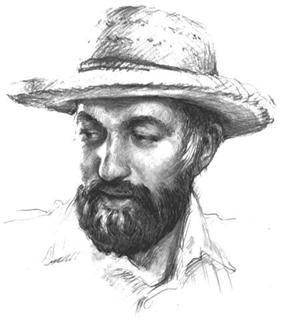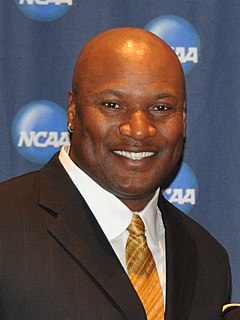A Quote by Leon Brown
Sometimes we have to lose our way to find out what we really want, for we often ignore our needs until we are lost.
Related Quotes
We all get lost once in a while, sometimes by choice, sometimes due to forces beyond our control. When we learn what it is our soul needs to learn, the path presents itself. Sometimes we see the way out but wander further and deeper despite ourselves; the fear, the anger or the sadness preventing us returning. Sometimes we prefer to be lost and wandering, sometimes it's easier. Sometimes we find our own way out. But regardless, always, we are found.
The names of the cerros and the sierras and the deserts exist only on maps. We name them that we do not lose our way. Yet it was because the way was lost to us already that we have made those names. The world cannot be lost. We are the ones. And it is because these names and these coordinates are our own naming that they cannot save us. They cannot find for us the way again.
In our constant search for meaning in this baffling and temporary existence, trapped as we are within our three pounds of neurons, it is sometimes hard to tell what is real. We often invent what isn't there. Or ignore what is. We try to impose order, both in our minds and in our conceptions of external reality. We try to connect. We try to find truth. We dream and we hope. And underneath all of these strivings, we are haunted by the suspicion that what we see and understand of the world is only a tiny piece of the whole.
Our behavior is different. How often have you seen a headline like this?--TWO DIE ATTEMPTING RESCUE OF DROWNING CHILD. If a man gets lost in the mountains, hundreds will search and often two or three searchers are killed. But the next time somebody gets lost just as many volunteers turn out. Poor arithmetic, but very human. It runs through all our folklore, all human religions, all our literature--a racial conviction that when one human needs rescue, others should not count the price.
That is why we need to travel. If we don't offer ourself to the unknown, our senses dull. Our world becomes small and we lose our sense of wonder. Our eyes don't lift to the horizon; our ears don't hear the sounds around us. The edge is off our experience, and we pass our days in a routine that is both comfortable and limiting. We wake up one day and find that we have lost our dreams in order to protect our days.
Often the deep valleys of our PRESENT will be UNDERSTOOD only by LOOKING BACK on them from the mountains of our FUTURE experience. Often we can’t see the LORD’S HAND in our lives until long after the trials have passed. Often the most difficult times of our lives are ESSENTIAL building blocks that form the FOUNDATION of our CHARACTER and pave the way to FUTURE opportunity, understanding, and happiness.
One of the most effective ways to overcome anxiety is to try to shift the focus of attention away from self and toward others. When we succeed in this, we find that the scale of our own problems diminishes. This is not to say we should ignore our own needs altogether, but rather that we should try to remember others' needs alongside our own, no matter how pressing ours may be
When a path opens up before us that leads we know not where, don't be afraid to follow it. Our lives are meant to be mysterious journeys, unfolding one step at a time. Often we follow a path worn smooth by the many and in doing so we lose our authenticity, our individuality, our own unique expression. Do not be afraid to lose your way. Out of chaos, clarity will eventually rise. Out of not knowing, something new and unknown will ultimately come. Do not order things too swiftly. Wait and the miracle will appear.
It's not enough, is it? Just to follow; just to have faith in someone bigger and smarter and better informed. That's how we're built, that's how every Partial is wired - to follow orders and trust in our leaders - but it's not enough. It never has been. We've followed our leaders, and sometimes they win and sometimes they lose; we do what they say and we play our part. But this is our decision. Our mission. And when we're done, it will be our victory, or our defeat. I don't want to fail, but if I do, I want to be able to look back and say, 'I did that. I failed. That was all me.




































